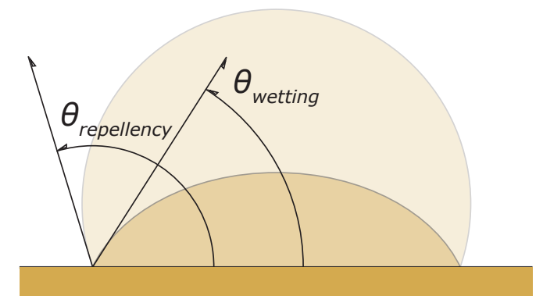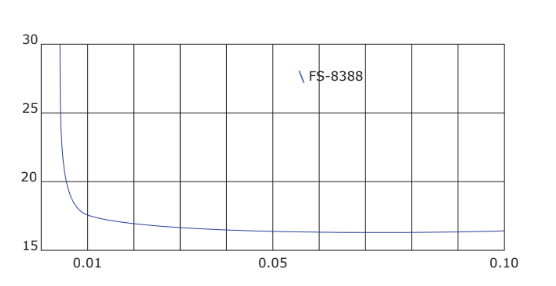Enhanced TDS
Identification & Functionality
- CASE Ingredients Functions
- Chemical Family
- Cleaning Ingredients Functions
- Country of Origin
- Industrial Additives Functions
- Product Code
- MITM16201
- Technologies
- Product Families
Features & Benefits
- CASE Ingredients Features
- HII Features
- Labeling Claims
- Key Features
- Optimized for surfactant performance, Thetawet short chain technology meets or exceeds performance of long-chain products.
- Water-soluble anionic fluorosurfactant effective at low end-use concentrations (0.01-0.3% typical). High foaming, with stable foam.
- Initial Ross Miles of 324 mm.
- Ross Miles of 292 mm after 3 min.
- Ross Miles of 289 mm after 10 min.
- Economical 40% active material ideally suited for a wide range of applications.
- Readily dilutes in water/alcohol/glycol mixtures with excellent shelf stability
- Exceptional surface tension reduction for wetting low-energy substrates such as plastic, metal and glass.
Applications & Uses
- Application Method
- Compatible Substrates & Surfaces
- Home Care Applications
- I&I Cleaning Applications
- Industrial Additives End Use
- Markets
- Applications
- Product Applications
- Sensitive to hard water, dilution with deionized or softened water is recommended.
- The combination of static/dynamic surface tension reduction properties with Thetawet™ FS-8388 is ideal for applications where rapid wetting while achieving the lowest equilibrium surface tension properties possible.
- In Floor Finish applications, Thetawet™ FS-8388 contributes surface defect reducing wetting performance (low surface tension) with coating smoothness (rapid leveling) for highest gloss development.
- Product Applications
- Industrial and Precision Cleaners
- Household cleaners
- Degreasers
- Caustic bottle washing
- Floor cleaners
- Leveling additive in aqueous wax emulsions
Properties
Technical Details & Test Data
- Technical Information
- Thetawet™ FS-8388 is a 40% active water soluble anionic fluorosurfactant in a low viscosity aqueous solution.
- 100% VOC-free/non-APEO containing Thetawet™ FS-8388 meets the needs of today’s formulator without sacrificing performance.
- High foaming, with stable foam.
- Thetawet™ FS-8388 is an economical super-wetter designed to work as the only surfactant in systems where a balance of wetting, leveling, and emulsification is required.
- Optimizing both static and dynamic surface tension reduction properties, use of Thetawet™ FS-8388 reduces or eliminates the need for VOC contributing coalescent solvents in paints, coatings, industrial finishes and other VOC sensitive applications.
- Technical Information
- Through extensive product development, application research and manufacturing optimization, Thetawet™ FS-Series short chain fluorosurfactants deliver performance on-par with long- chain alternatives.
- Thetawet™ FS-series short-chain fluorosurfactants are exceptional wetting agents efficient at low end-use concentrations, typically in the 10-100 ppm range.
- Very low end-use concentrations allow for economical use and often eliminate re-wet properties characteristic of the higher end use concentrations required with traditional and specialty surfactants.
- Physical Scientists assigned the Greek Letter Theta θ to represent the angle formed by a liquid at the three phase boundary where a solid, liquid, and gas intersect, also known as the contact angle.
- The measurement of Theta is the means by which we can quantify both how well a liquid can wet out a surface, or by contrast, how well a surface can resist being wetted.
- The manipulation and control of Theta is critical in the design of effective oil, water, and stain repellents, and the reduction of surface tension necessary to make improved coatings and cleaning products.
- It is only fitting that ICT chose Theta θ to represent these new and exciting products.
- As illustrated below, a decreasing θrepresents increasing wetting and adhesiveness, and an increasing θrepresents increasing repellency.

- Thetawet™ FS-8388 is an excellent choice for wetting difficult to wet low energy surfaces such as plastics, oily substrates, waxy surfaces, and silicone and fluoropolymer treated fabrics.
- The ability of FS-8388 to lower the aqueous surface tension of liquids, allows those liquids to wet low energy surfaces.
- By contrast, typical alkyl surfactants, at any concentration, will only lower aqueous surface tension to about 30 dynes/cm, meaning that a typical alkyl surfactant solution will not wet a 25 dynes/cm surface, resulting in lack of coverage, incomplete leveling or inadequate cleaning performance.

Aqueous Surface Tension, duNoüy ring, Wt.% actives, dynes/cm at 25°C
- Demonstrated above, the surface tension of aqueous solutions and emulsions can be reduced to 16-17 dynes/cm in as little as 350ms with Thetawet™ FS-8388.
- This low surface tension results in better wetting, spreading, and penetration which translates into improved film uniformity, enhanced adhesion, reduced pinholes and craters for coatings, improved spreading for reduced water spotting, and smoother and more even films for finishes and polishes.
- Reduced surface tension also can result in better wetting and penetration of cleaning solutions which makes them more effective.
Packaging & Availability
- Packaging Type
Principal Information
- Group Principal Number
- S002669
- Principal
Storage & Handling
- Storage Conditions
- Mix before use.
- Separates upon standing, when thawed after freezing; thaw/mix thoroughly before use.
Other
- Appearance
- Off-white emulsion
- Appearance (SDS)
- Emulsion liquid
- Color (SDS)
- Light yellow to tan
- Explosive Nature (SDS)
- Not explosive
- Item Number
- Odor
- Mild ammonia
- Odor (SDS)
- Ammonia - like
- Other Hazards
- None
- Oxidizing Properties (SDS)
- Not oxidising
- Temperature Control
- Yes
- USA/DOT UN Number
- Not Applicable
- Application Information
Value Units Test Method / Conditions Dosage (Use Level) 0.01-0.2 % % Cleaning applications Dosage (Use Level) 0.1-0.3 % % coatings - Chemical Properties
Value Units Test Method / Conditions pH 6.0-8.0 - - Material Composition
Value Units Test Method / Conditions Active Content 38.0-40.0 % % - Physical Properties
Value Units Test Method / Conditions Boiling Point 100.0 °C °C Density 1.06-1.14 g/mL g/mL at 25°C Storage Temperature max. 122.0 °F °F - SDS Physical and Chemical Properties
Value Units Test Method / Conditions Boiling Point (SDS) 100.0 °C °C Density (SDS) 1.1 g/mL g/mL Flash Point (SDS) min. 93.0 °C °C Log Partition Coefficient (Log Pow) (SDS) -1.78-0.83 - pH (SDS) 9.0 - - Shelf Life & Stability
Value Units Test Method / Conditions Shelf Life 11.0 mo mo
